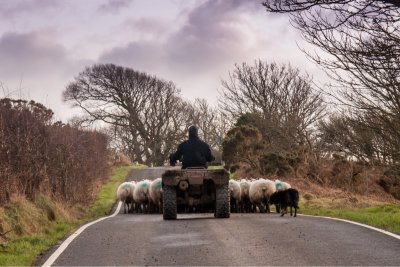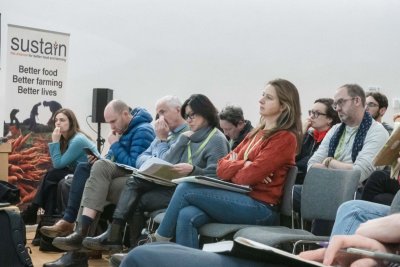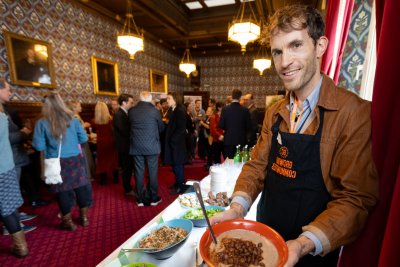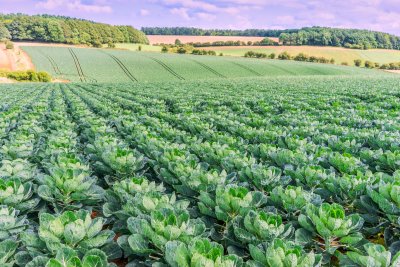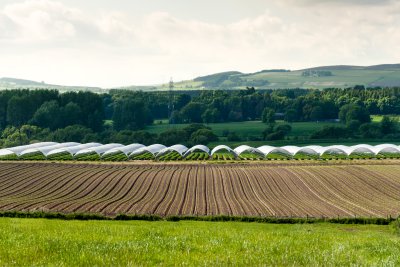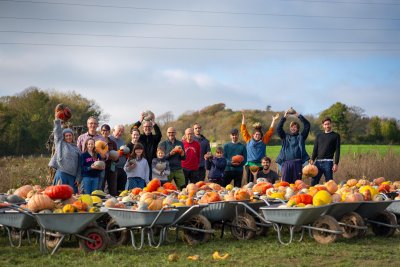 Volunteers gleaning pumpkins at Sompting Pumpkins, Sussex. Copyright: Caleb Yule, Stories of Note
Volunteers gleaning pumpkins at Sompting Pumpkins, Sussex. Copyright: Caleb Yule, Stories of Note
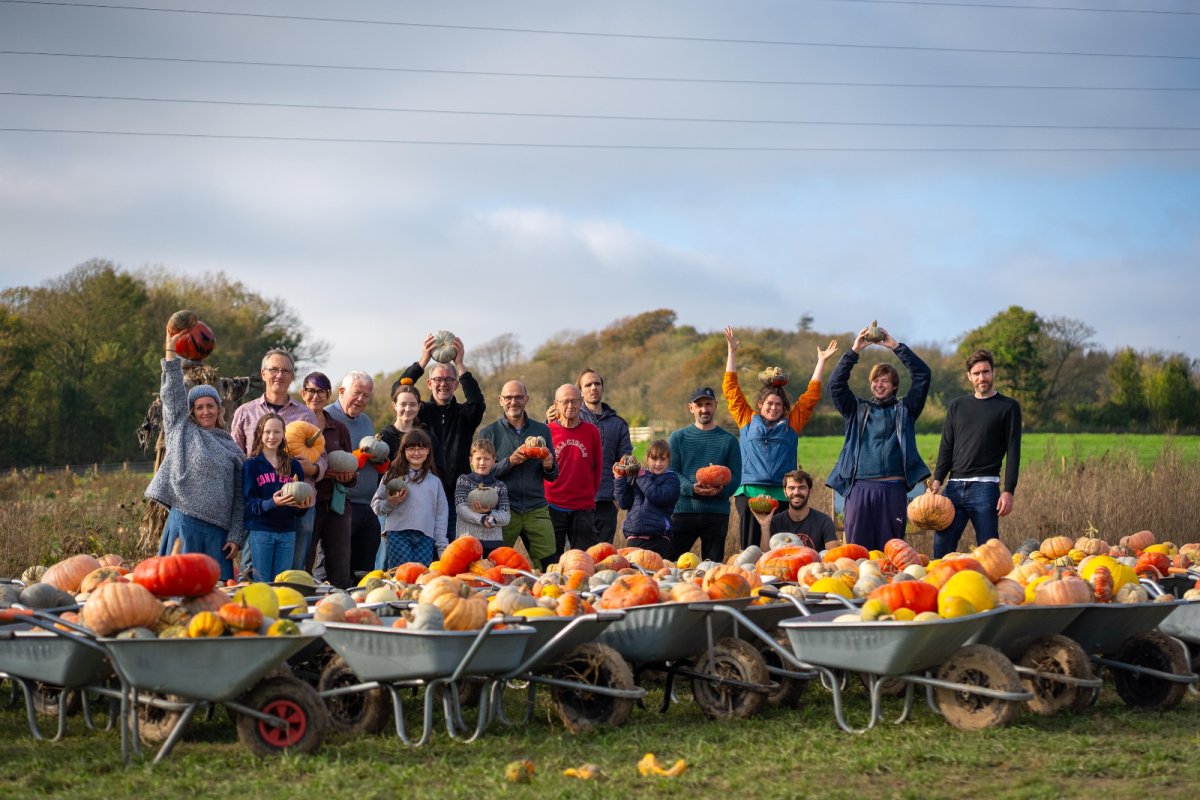
Foodrise release toolkit for reducing farm-level food waste
It's peak harvest season but not all will make it to market, with 25% of all food loss and waste occurring at the farm level. To help salvage surplus and connect local groups with growers, Sustain member Foodrise relaunches their Gleaning Toolkit.
Gleaning is an age-old practice of bringing volunteers together to harvest on-farm surplus that will not make it to market and redistributing it to community food initiatives. As we’re now in peak harvest season, The Gleaning Network, hosted by Foodrise, has relaunched their Gleaning Toolkit to make it easier for local groups and organisations to salvage surplus and connect with local growers and farmers.
The Gleaning Network consists of over 20 active groups working with their volunteer base to harvest would-be-wasted food in the field of commercial farms, market gardens and orchards to redistribute via the community food sector. Thanks to funding from Defra, Foodrise has reestablished the Gleaning Network and is working to increase the amount of farm-level food surplus being redirected across England.
The Gleaning Toolkit provides tried-and-tested methods for engaging with farmers, recruiting volunteers, managing the logistics of a gleaning day and establishing gleaning on your area. Once networks have been built, gleaning opportunities return year after year. It’s a great way to get more people connected to farms and where their food comes from and way for growers to engage with their communities.
Gleaning groups have no single model and can be their own entity, sit within an environmental or community organisation or be purely volunteer led. Some run weekly mini-gleans at their local market garden, whilst others will harvest several tonnes of produce per glean at large commercial farms. There is no one-size-fits-all, but plenty of opportunities to glean across the country.
For more information, email ren@foodrise.org.uk
A little more about gleaning
At a social level, gleaning provides a foothold to undo social and cultural alienation from farming and nature. As Patrick Holden from the Sustainable Food Trust says “The problem today is that we live in a society where almost everyone is completely disconnected from the story behind their food.” Gleaning days connect volunteers with the outdoors, as well as their local food system and farmers, by providing safe experiences on working farms.
At an environmental level, WWF and Tesco’s Hidden Waste report found that 25% of all food loss and waste occurs at the farm level. Power imbalances force farmers to overproduce in the backdrop of unreliable weather and inconsistent supermarket contracts. In short, our wasteful food system is harming nature and in turn diminishing our ability to feed ourselves effectively. Gleaning is by no mean an answer to the systemic issues within our food system that lead to extortionate levels of waste – but it is a great way of raising awareness of the issues.
Sustain: Sustain The alliance for better food and farming advocates food and agriculture policies and practices that enhance the health and welfare of people and animals, improve the working and living environment, enrich society and culture and promote equity.
Sustain
The Green House
244-254 Cambridge Heath Road
London E2 9DA
020 3559 6777
sustain@sustainweb.org
Sustain advocates food and agriculture policies and practices that enhance the health and welfare of people and animals, improve the working and living environment, promote equity and enrich society and culture.
© Sustain 2026
Registered charity (no. 1018643)
Data privacy & cookies
Icons by Icons8
